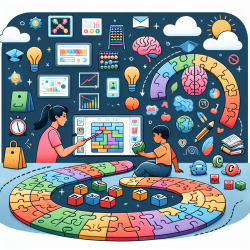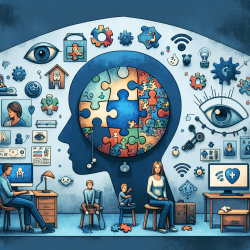Developmental Coordination Disorder (DCD) affects approximately 5-6% of the pediatric population and significantly impacts daily activities, academic performance, and social interactions. The recent systematic review and meta-ethnography titled "Children and young people’s experiences of living with developmental coordination disorder/dyspraxia" provides critical insights into the lived experiences of children with DCD. Here, we discuss how practitioners can leverage these findings to improve outcomes for children with DCD.
Key Findings
The synthesis of qualitative studies revealed three main themes:
- “It’s harder than it should be”: Navigating daily activities – Children with DCD often struggle with daily tasks that peers find easy, leading to negative self-appraisal and feelings of inadequacy.
- Fitting in – Social inclusion is a significant challenge. Many children with DCD experience bullying and exclusion, impacting their mental health and self-esteem.
- “So what? I drop things”: Strategies and supports to mitigate challenges – Despite the challenges, children with DCD employ various strategies and receive support from parents, friends, and teachers to navigate their daily lives.
Practical Implications for Practitioners
To improve outcomes for children with DCD, practitioners should consider the following strategies:
- Enhance Social and Attitudinal Environments
- Focus on creating inclusive environments in schools and communities.
- Implement anti-bullying programs that address stigma-based bullying.
- Foster Friendships and Social Inclusion
- Encourage peer support and inclusive play activities.
- Facilitate group activities that promote acceptance and fun.
- Support Individual Strategies
- Identify and build on the child’s strengths and interests.
- Provide tailored interventions that address specific needs, such as handwriting support or physical activity adaptations.
Encouraging Further Research
While this meta-ethnography provides valuable insights, further research is needed to explore specific aspects of the lived experiences of children with DCD, such as friendships, education, and transition to adulthood. Practitioners are encouraged to stay informed about ongoing research and incorporate new findings into their practice.
To read the original research paper, please follow this link: Children and young people’s experiences of living with developmental coordination disorder/dyspraxia: A systematic review and meta-ethnography of qualitative research.










